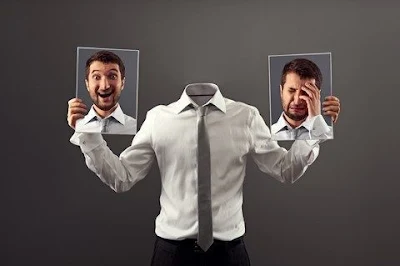Unleashing the Power of 15 Psychological Marketing Triggers to Drive Customer Purchase Decisions
Understanding the psychology behind consumer behavior is a game-changer for marketers. By tapping into the subconscious triggers that influence buying decisions, you can create compelling marketing campaigns that resonate with your target audience. In this article, we will explore 15 powerful psychological marketing triggers that can make people buy from you. Harnessing these triggers will enable you to connect with customers on a deeper level and drive conversions.
1. Social Proof
People are inherently influenced by the actions and opinions of others. Utilize social proof by showcasing positive customer testimonials, reviews, and endorsements. Highlight the number of satisfied customers or display social media shares and likes to build trust and credibility.
2. Scarcity
The fear of missing out is a strong motivator. Create a sense of urgency by emphasizing limited quantities, time-limited offers, or exclusive deals. Scarcity triggers the desire to act quickly, increasing the likelihood of a purchase.
3. Authority
Position yourself as an expert in your industry to establish authority and credibility. Leverage endorsements from industry leaders, display relevant certifications, or share valuable content that showcases your knowledge. When people perceive you as an authority, they are more likely to trust and buy from you.
4. Reciprocity
The principle of reciprocity states that when someone receives something of value, they feel compelled to reciprocate. Offer free resources, samples, or exclusive content to build goodwill. This triggers a sense of indebtedness, increasing the likelihood of a future purchase.
5. Emotion
Tap into customers' emotions to create a memorable and impactful connection. Craft compelling narratives, use powerful visuals, and evoke emotions that align with your brand values. Emotionally engaged customers are more likely to make purchasing decisions driven by their feelings.
6. Urgency
Similar to scarcity, urgency prompts customers to act quickly. Use time-limited promotions, countdown timers, or limited-time discounts to create a sense of urgency. This triggers a fear of missing out and prompts immediate action.
7. Storytelling
Humans are wired to connect through stories. Craft narratives that resonate with your target audience's values, aspirations, or pain points. By weaving a compelling story around your brand, you can create an emotional bond and increase the likelihood of a purchase.
8. Anchoring
Anchoring is the cognitive bias where people rely heavily on the first piece of information they receive. Present a higher-priced option before revealing a discounted price, making the discounted offer appear more appealing. This psychological trigger leverages the concept of relativity to influence decision-making.
9. Personalization
Tailor your marketing messages and experiences to individual customers. Use data-driven insights to deliver personalized recommendations, customized offers, or targeted content. Personalization enhances the perception of relevance and makes customers feel understood, increasing their propensity to buy.
10. Fear of Missing Out (FOMO)
FOMO is a powerful psychological trigger. Highlight exclusive or limited-time opportunities that customers can't afford to miss. Create a sense of excitement and anticipation around your products or services to trigger FOMO and drive sales.
11. Cognitive Dissonance
Cognitive dissonance occurs when individuals experience conflicting thoughts or beliefs. Use this trigger by emphasizing the benefits of your product or service, showcasing how it resolves a customer's pain points or satisfies their desires. This helps alleviate cognitive dissonance and reinforces the purchase decision.
12. Authority Figures
Leverage the influence of authoritative figures or influencers in your marketing efforts. Collaborate with industry experts or well-known personalities who align with your brand values. Their association with your brand enhances credibility and fosters trust among your audience.
13. Social Identity
Humans have a strong need for social acceptance and belonging. Tap into this by showcasing how your brand aligns with a particular identity or community. Position your product or service as a symbol of belonging or a way to express one's identity, triggering a desire to buy.
14. Gamification
Gamification leverages people's natural inclination for competition and achievement. Incorporate elements such as challenges, rewards, or leaderboards into your marketing strategy. Gamified experiences trigger a sense of accomplishment and enjoyment, fostering engagement and motivating purchases.
15. Consistency
Humans have a desire to align their actions with their beliefs and previous commitments. Encourage customers to make small commitments or take actions that align with your brand, creating a sense of consistency. This consistency triggers a subconscious inclination to continue engaging with your brand and leads to future purchases.
By harnessing the power of psychological marketing triggers, you can tap into the subconscious motivations that drive consumer behavior. Implement strategies that leverage social proof, scarcity, authority, reciprocity, emotion, urgency, storytelling, anchoring, personalization, FOMO, cognitive dissonance, authority figures, social identity, gamification, and anchoring. Remember to align these triggers with your brand values and create authentic experiences that resonate with your target audience. Mastering the art of psychological marketing will enable you to create compelling campaigns that drive customer engagement and ultimately boost sales.



























